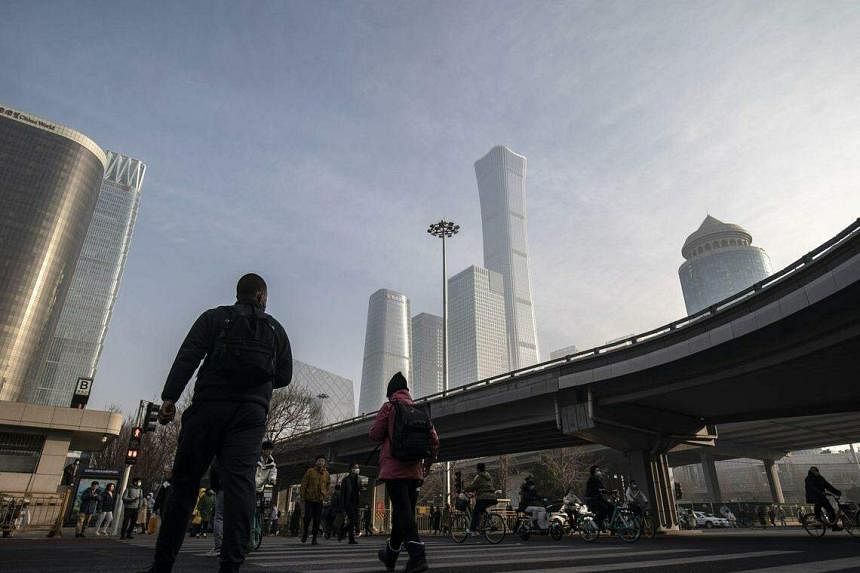BEIJING - New Chinese Premier Li Qiang pledged on Monday to provide private companies in the world’s second-largest economy with a better business environment, while urging the government to form closer ties with entrepreneurs.
“We will make further efforts to support private entrepreneurs to grow and thrive,” he said on the closing day of China’s annual parliamentary meetings, in his first remarks to the media.
The government should take the lead in “promoting a culture of respect for pioneers and entrepreneurs”, he added, encouraging officials to “make friends with entrepreneurs and build a clean and cordial relationship with them”.
For their part, entrepreneurs should move forward with “spirit, strength and confidence”, Mr Li said, recalling how in the 1980s and 1990s, entrepreneurs in the provinces of Zhejiang, where he grew up, and its neighbouring Jiangsu showed a “strong pioneering spirit to reach their goals”.
“They were willing to explore all paths, go through all troubles, try all means and endure all hardships. Although the conditions, environment and the models of entrepreneurship are vastly different today, this spirit of clearing obstacles and blazing new trails will always be needed,” he added.
Addressing concerns in the private sector following a series of regulatory crackdowns in 2022, particularly on the high-flying tech sector, Mr Li acknowledged that “there were some inappropriate discussions about the private entrepreneurs, which made them feel frustrated”.
But China’s commitment to them is “unequivocal and steadfast”, he said.
Chinese tech companies, from ride-hailing giant Didi to Mr Jack Ma’s Alibaba, have come under heavy-handed regulation in recent years, as regulators reined in the growing prowess of the rapidly growing sector.
In the most high-profile crackdown in 2020, fintech giant Ant Group was forced to suspend its US$37 billion (S$50 billion) initial public offering days before it was supposed to be listed. Regulators had also targeted the online financial arms of other tech behemoths such as JD.com, ByteDance and Tencent.
Analysts said Mr Li’s assurance is timely, given the current perceptions that Beijing does not support the private sector.
Professor Lawrence Loh, director of the Centre for Governance and Sustainability at NUS Business School, said that Mr Li’s comments serve “to dispel these perceptions and to further reinforce the consistent and continued role of the private sector in the country’s economy”.
“The assurance for the private sector is most critical as this will be the sector that may propel the economy forward,” said Prof Loh, who teaches governance and sustainable business for NUS’ Chinese executive MBA programme.
Mr Louis Kuijs, chief economist for Asia-Pacific at S&P Global Ratings in Hong Kong, said it is good to see that “despite the challenges from (the US-China) decoupling and containment, Mr Li underscored China’s commitment to the ‘opening up’ policy… Such emphasis should allay fears that China is turning inwards”.
China’s growth has been slowing in recent years, stabilising from the double-digit growth that it had become known for in its early days of opening up in the 1980s.
The country, whose total output has exceeded 120 trillion yuan (S$23.5 trillion), has set a modest growth target of around 5 per cent, its lowest in three decades.
Hitting 2023’s economic growth target will not be easy, Mr Li said at the wide-ranging media conference on Monday. “To achieve around 5 per cent growth on such a high base is not an easy task, and it would require redoubled efforts.”
In 2022, economic growth came in at 3 per cent, falling short of the around 5.5 per cent target set by the government that year.
Analysts have said that China had set a relatively low growth target for 2023, given the previous year’s lower base. They noted that the country had recently abolished its zero-Covid policy, the main factor in 2022’s lacklustre economic performance. This would mean a sharp rebound in recovery this year.
In 2023, the government is aiming to boost domestic demand as it guns for a solid economic recovery.
Mr Li’s predecessor Li Keqiang, at the opening ceremony of the National People’s Congress, or Parliament, on March 5, said encouraging spending will be the government’s top priority in 2023, up from fifth last year.



